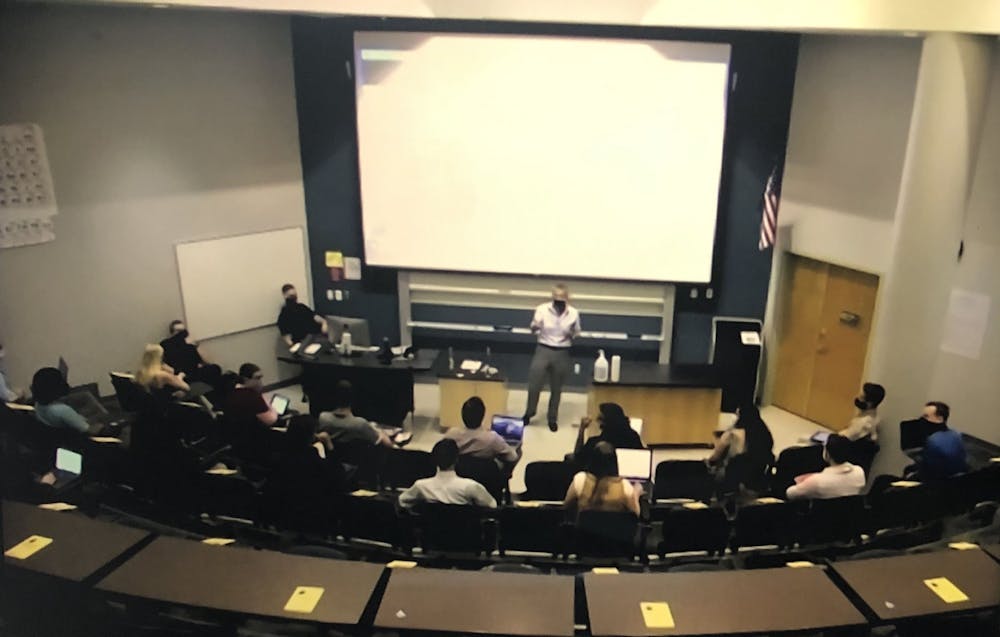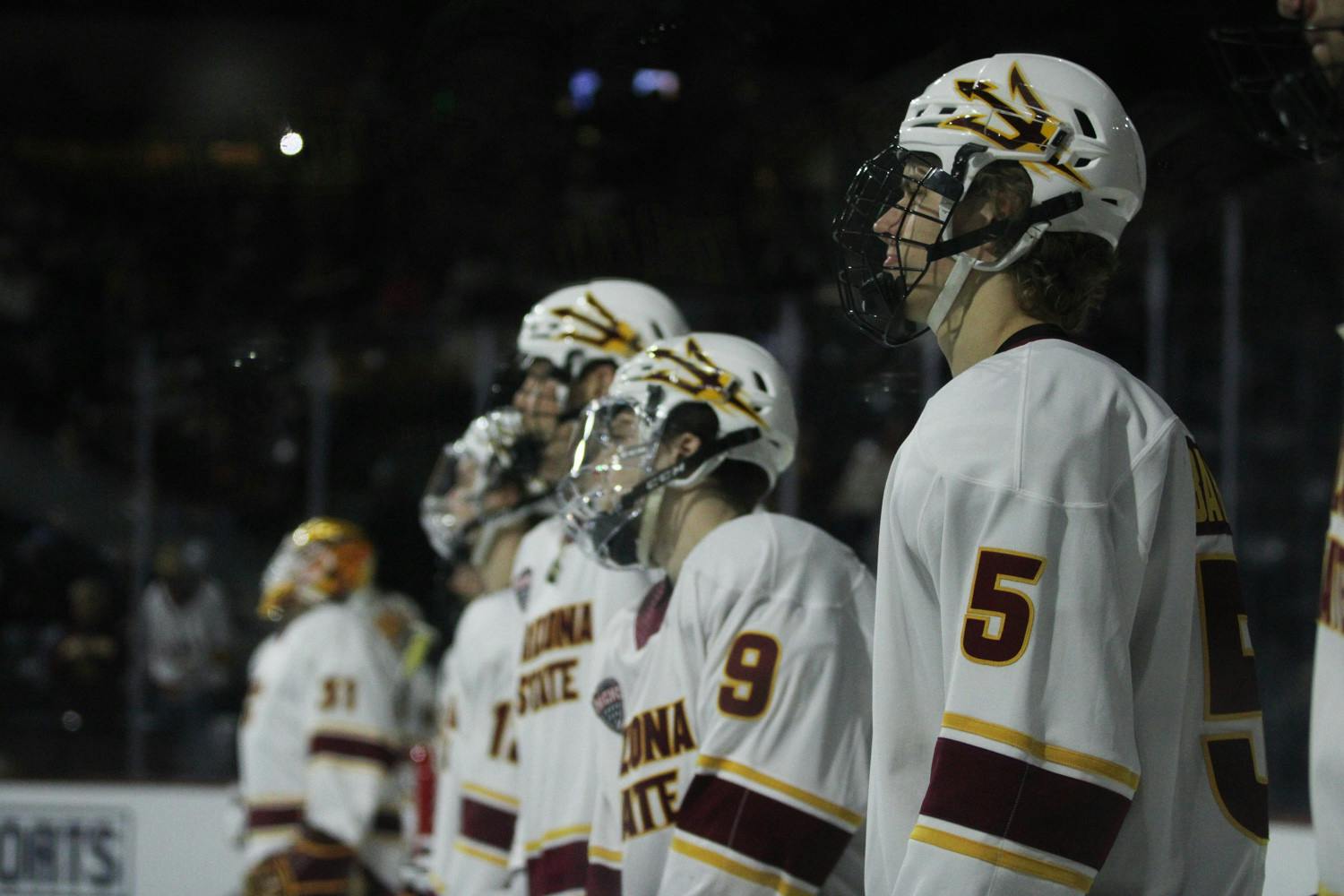Multiple students attending an engineering business practice class in person Tuesday said their professor required them to move to the front two rows of the classroom and sit near one another, violating University indoor social distancing policies.
Thomas Seager, an associate professor of engineering business practices, initially asked roughly 15 students in a section of CEE to fill in the classroom's front seats. When students moved but remained socially distant, Seager told them they had not followed his directions and asked them again to move to the front, students said.
A student attending through Zoom said students were probably not comfortable sitting closer together, given the ongoing pandemic.
Sitting next to the door was no safer than sitting in the front, Seager told the students. The students added he also told them if they were concerned about the pandemic and sitting together in class, they should have attended through Zoom.
Katie Paquet, a University spokesperson, said the "situation has been addressed with this professor and he has been reminded of our physical distancing protocols and that they must be adhered to in the classroom." She said students should contact the provost's office with concerns.
In an email to the class Wednesday obtained by The State Press, Seager said his directions were not intended to "violate ASU health protocols." The class will also have no more "reseating exercises" and students "may maintain a social distance that is comfortable" within the lecture hall, Seager said in the email.
"I think his actions of using his authority to coerce people to move closer together than they may have been comfortable were definitely out of line," one student who attended the class on Zoom said in an email, who was granted anonymity for fear their standing in class would be affected. “He could have made his point in a way that did not put people in further risk.”
In an emailed statement, Seager said the class at "no time" violated ASU's health protocols. He added his instructions to students were "consistent with ASU health protocols by maintaining at least one empty seat between each student, wearing face masks, and keeping total occupancy well below 50% of rated lecture hall capacity."
But, Seager said, "What's missing in the ASU health protocol is a way for individual students who value the in-person learning experience to request accommodations that exceed the minimum social distancing or other protective measures."
Paquet said in a follow-up that the University's protocol is still six feet of distance between students and that "no student should be forced to sit anywhere where they may be uncomfortable."
Students also raised concerns about Seager's Twitter account, where he has suggested repeatedly COVID-19 is exaggerated and is more about keeping "the CARES Act gravy train" going for hospitals.
In one tweet from Aug. 9, Seager said "If COVID were a real pandemic" then government officials and the media would not have to make up death statistics and "fudge death certificates."
In another tweet on Aug. 13, Seager said "If this was a real pandemic, Banner Health wouldn't have to scour poor Phoenix neighborhoods in search of uninsured COVID positives to help them reach 'high impact' classification," because "In a real pandemic the sick people come to you."
Fact checks and articles said it is more likely the death count is undercounted, not overcounted.
"His Twitter wouldn't be an issue if he still obeyed ASU policy, common sense, and the concerns of students, however he does not seem to care about these things, and chose to put his students' health in danger," one student who attended the class on Zoom said in an email, who was granted anonymity for fear their standing in class would be affected.
On Aug. 31, the University reported 803 positive COVID-19 cases within the ASU community. The Arizona Department of Health Services reported 519 new cases of the coronavirus in the state Wednesday. Positive cases rose by 159 Wednesday in the 85281 zip code where the Tempe campus is located, internal tracking of ADHS zip code data done by The State Press showed.
Reach the reporter at wmyskow@asu.edu and follow @wmyskow on Twitter.
Like The State Press on Facebook and follow @statepress on Twitter.

Wyatt Myskow is the project manager at The State Press, where he oversees enterprise stories for the publication. He also works at The Arizona Republic, where he covers the cities of Peoria and Surprise.




